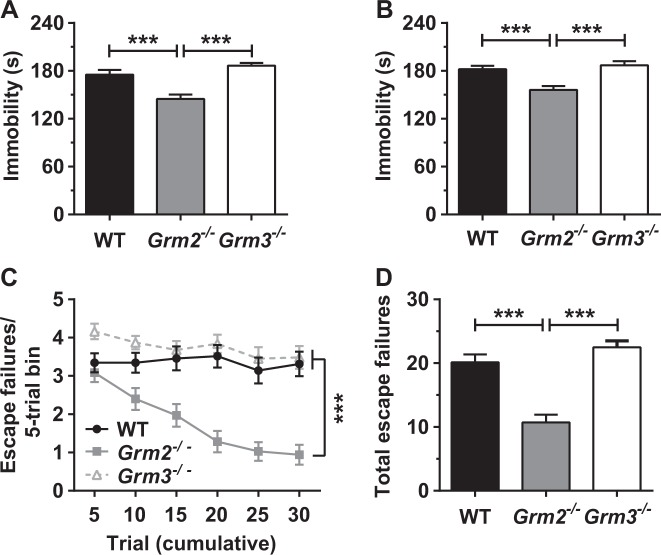Fig. 1.
Mice lacking mGlu2, but not those lacking mGlu3, manifest reduced immobility in the forced-swimming test (FST) and are resilient to inescapable shock-induced escape deficits. Relative to wild-type (WT) controls, mice lacking mGlu2 (Grm2−/−), but not those lacking mGlu3 (Grm3−/−), present with reduced immobility in (a) an initial FST and (b) a re-test session 24 h later (n = 23–24 genotype). Grm2−/− mice, but not Grm3−/− mice, also manifest fewer (c, d) inescapable shock-induced escape failures, compared with WT mice (c, failures over time; d, total failures; n = 31–35/group). Data are mean ± SEM. *p < 0.05, **p < 0.01, ***p < 0.001. See Table S1 for reporting of statistical analyses and sample sizes per sex

